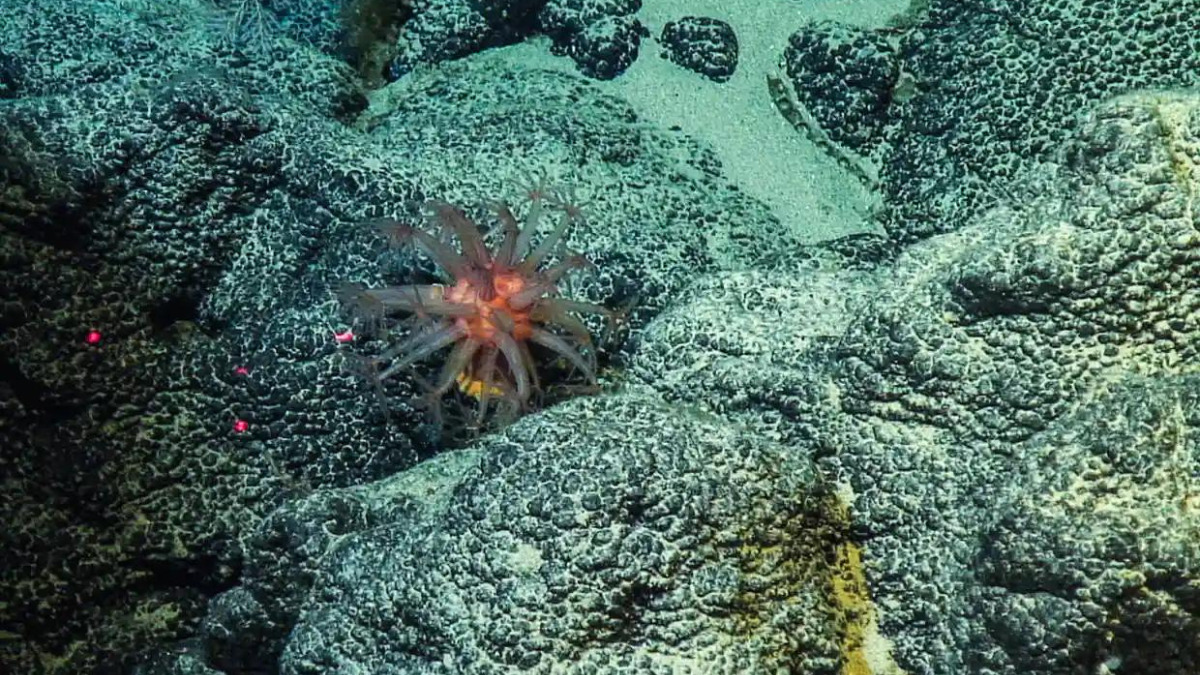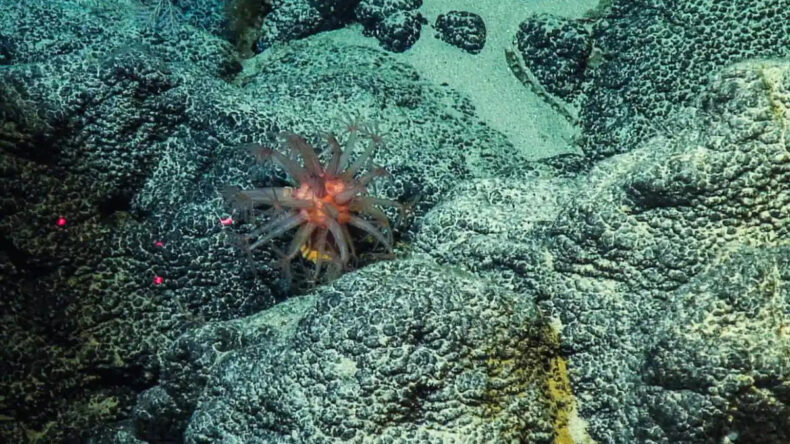The presence of deep-sea mining seems to lead to a decline in animal populations, indicating that the controversial industry’s impact on marine life may extend further than previously anticipated.

A study examining the ecological impact of drilling tests conducted in Japan in 2020, which marked the country’s initial extraction of cobalt crusts from deep-sea mountains, revealed a decline in marine life such as fish and shrimp at the site after one year. The density of marine organisms outside the affected area had decreased by over 50%.
The study’s lead author, Travis Washburn, an ecologist affiliated with the Geological Survey of Japan, emphasized the significant implications of the findings for policymakers involved in the regulation of deep-sea mining proposals. Washburn made this statement in relation to the study published in Current Biology.
Washburn, whose research specifically centers on the benthic zone, stressed the need to expand our understanding of the impacts of deep-sea mining. He suggested that there are significant consequences associated with treating certain sites as unaffected or control areas when they are actually undergoing changes due to indirect mining impacts. This observation underscores the importance of considering a broader range of factors when assessing the environmental effects of deep-sea mining.
Using data collected during visits by Japanese mining engineers to the Takuyo-Daigo seamount, a team of scientists examined the situation. Their analysis revealed that one year after the test extraction, there was a significant decrease in fish and shrimp density. Specifically, the “deposition” areas directly impacted by sediment pollution experienced a 43% decline, while the surrounding areas witnessed a more substantial drop of 56%.
Washburn emphasized the misconception that mining impacts are limited only to the immediate deposition zone. He pointed out that if certain animals migrate away from the outskirts of the deposition area, the overall area affected by mining would extend beyond its initial boundaries. This highlights the potential for a broader and more far-reaching impact on marine life than previously assumed.
Washburn cautioned against the hasty pursuit of seabed mining, highlighting the potential consequences on marine life. He expressed that it might take several decades before the complete extent of the impact on marine ecosystems becomes fully understood. This suggests the need for careful consideration and comprehensive research to assess the long-term effects of deep-sea mining before proceeding with widespread operations.
As of now, the International Seabed Authority, along with its 168 member countries, has not reached an agreement on regulations to govern the deep-sea mining industry. The deadline of July 9 for the quasi-UN organization to either adopt regulations or review applications for mining contracts under existing laws has passed, implying that commercial deep-sea mining may be allowed to proceed without new rules in place.
Washburn called upon decision-makers to make use of the existing available data. He emphasized that while there are still numerous unknowns, it could take several decades to obtain answers to some of the unanswered questions regarding the impact of deep-sea mining.
Impacts of Deep-sea mining
The deep sea is home to a rich and diverse ecosystem, including unique species that are often not found anywhere else on Earth. Mining activities can result in the destruction of habitat and the loss of species, potentially leading to the extinction of organisms. Mining operations can cause significant disturbance to the seafloor, resulting in sediment plumes and increased turbidity. This can smother benthic communities and affect marine life that relies on sedimentary processes for survival.
The process of lifting minerals from the ocean floor can cause the suspension of fine particles, which may have cascading effects on the water column, impacting organisms at various depths and disrupting food chains. Mining operations can release potentially harmful chemicals and heavy metals into the water, impacting both local marine life and potentially larger oceanic ecosystems.
It is important to note that the International Seabed Authority (ISA) is responsible for regulating deep sea mining in international waters. The industry is still in the exploration phase, and ongoing debates and discussions continue regarding the best practices, regulations, and potential environmental safeguards for deep sea mining operations.













